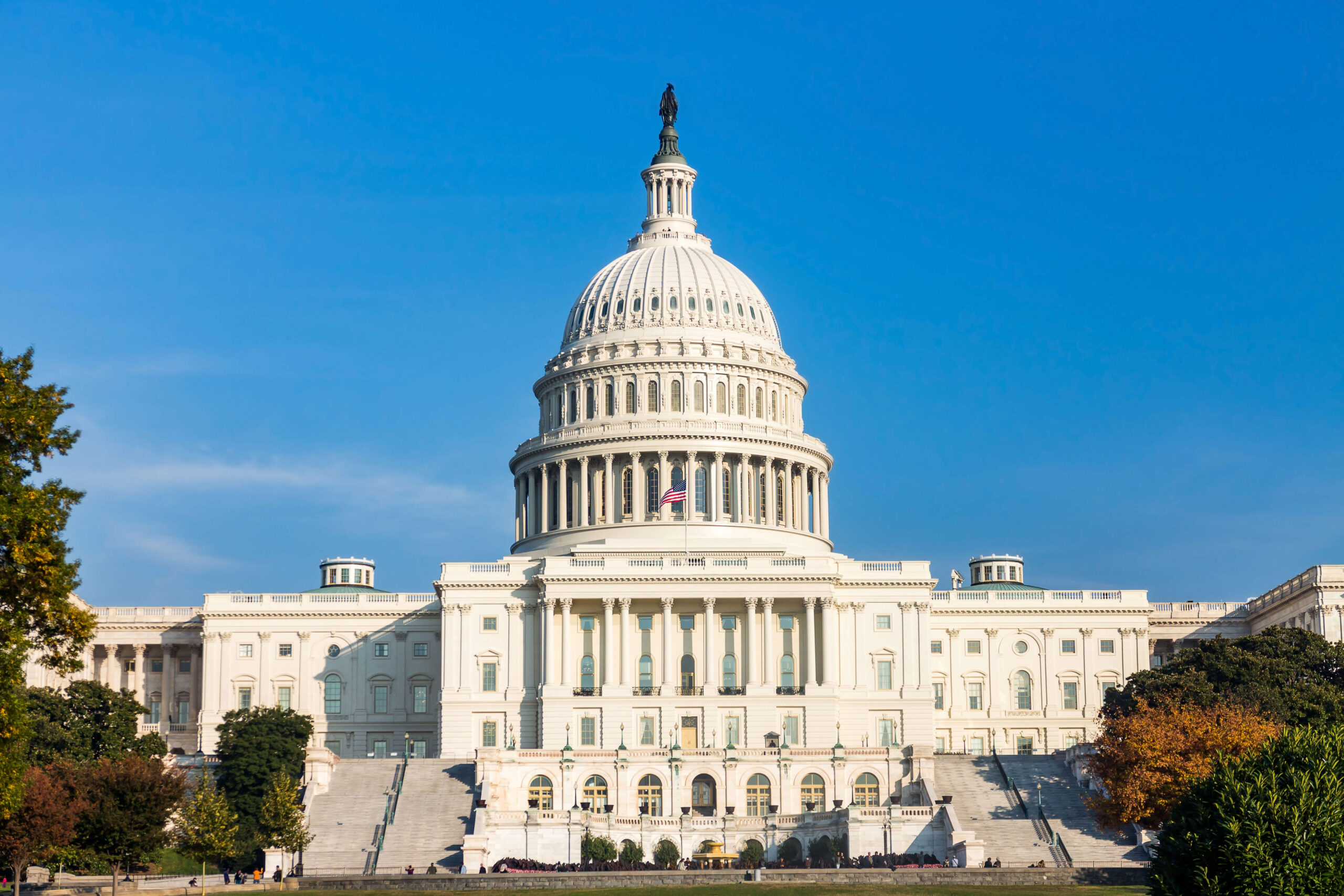Congress Passes Arbitration Carveout. In a rare moment of bipartisanship—particularly in the labor and employment policy sphere—the U.S. Congress this week passed the Ending Forced Arbitration of Sexual Assault and Sexual Harassment Act of 2021. The bill sailed through the U.S. Senate on a voice vote on February 10, 2022, after passing the U.S. House of Representatives earlier in the week by a vote of 335–97. The bill would prohibit any “predispute arbitration agreement or predispute joint-action waiver” relating to a “sexual assault dispute” or “sexual harassment dispute.” President Biden is expected to sign the bill into law shortly. The new law “shall apply with respect to any dispute or claim that arises or accrues on or after the date of enactment of [the] Act.” Ron Chapman, Jr., Christopher C. Murray, and Hera S. Arsen have the details.
White House Union Task Force Issues Report. The White House Task Force on Worker Organizing and Empowerment finally released its report this week. Created by President Biden’s similarly named executive order, the task force was instructed to “identify statutory, regulatory, or other changes that may be necessary to make policies, practices, and programs more effective means of supporting worker organizing and collective bargaining.” Primarily focused on administrative and regulatory policy changes, the report contains nearly seventy recommendations for President Biden, including the following:
- Instruct the General Services Administration, U.S. Department of Defense (DOD), and National Park Service to ensure that union organizers can access contractor employees working at federal facilities, military bases, and national parks.
- “Instruct the Department of Labor to review its rules and policies on persuader reporting and take all appropriate actions to strengthen its rules and enforcement to ensure maximum compliance and reporting of persuader activity.” This includes a recommendation, already underway, to identify federal contractors that are engaging in persuader activity.
- Direct the DOD to develop further guidance for contracting officials regarding regulations that prohibit the reimbursement of federal contractors’ costs related to activities undertaken to persuade employees of their rights to join or not join labor unions.
- Direct the U.S. Department of the Treasury to “review and evaluate options for legislative tax proposals that could incentivize union participation and formation and other worker empowerment initiatives.”
- Instruct the U.S. Department of Labor (DOL) to continue to scrutinize independent contractor arrangements through enforcement (including via partnerships with agencies such as the Internal Revenue Service), as well as through the issuance of guidance and regulations.
- Instruct the DOL to improve enforcement of the Service Contract Act in order to “give unionized contractors a greater ability to compete for federal service contracts because their non-union competitors will not be able to slash wages and benefits to win bidding contests.”
- Instruct the U.S. Department of the Interior to consider providing preferences “with respect to major construction contracts to companies submitting proposals that include commitments to project labor agreements.”
The task force will remain in place to issue a supplemental report, including an update “on progress to date and additional recommendations,” within six months of the October 23, 2021, date of the report (which will be around the end of April 2022).
DOL to Target Warehouse and Logistics Employers. This week, the DOL’s Wage and Hour Division (WHD) announced a new initiative “to take heightened action to ensure that warehouse and logistics workers’ wages and workplace rights are protected.” The WHD will focus on enforcing the rights of warehouse workers, delivery drivers, and truck drivers, and “will also target misclassification of employees as independent contractors.” The new initiative “will use education, outreach and vigorous enforcement to increase compliance and reduce industry violations.”
Bill Proposes Allowing “Employee Involvement Organizations.” This week, U.S. Senator Marco Rubio (R-FL) and U.S. Representative Jim Banks (R-IN) introduced the Teamwork for Employees and Managers (TEAM) Act of 2022. The bill would amend the National Labor Relations Act to allow for employees to form Employee Involvement Organizations (EIOs) “to address matters of mutual interest, including issues of quality of work, productivity, efficiency, compensation, benefits (including related to education and training), recruitment and retention, grievances, child care, safety and health, and accommodation of the religious beliefs and practices of employees.” Current law prohibits such employee groups that are short of actual employee unions. A previous version of the bill was vetoed by President Clinton way back in 1996.
NLRB Independent Contractor Case Moves Forward. February 10, 2022, was the deadline for stakeholders to submit briefs in response to the National Labor Relations Board’s (NLRB) case proposing to change its independent contractor standard. The Board is expected to issue a decision—likely in the coming months—that will narrow the test for independent contractor status.
U.S. Senate Honors TB12. This week, a bipartisan group of nine U.S. senators from New England introduced a resolution honoring the career of recently retired professional quarterback Tom Brady. Noticeably absent from the sponsoring group was Vermont senator Bernie Sanders. Also noticeably absent from the text of the resolution itself is any mention of Brady’s two Super Bowl losses to Eli Manning and his New York teammates. Query whether New York senators Chuck Schumer and Kirsten Gillibrand will move to amend the resolution to reflect this important fact.





